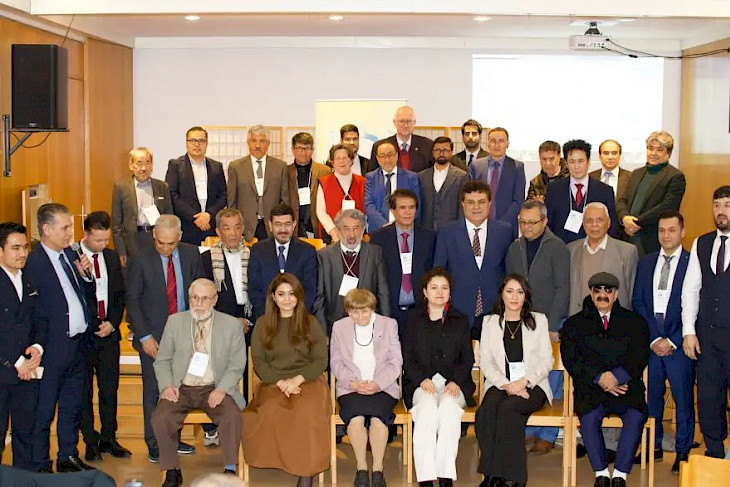A group of Afghan politicians, scholars, and activists living in exile have come together to propose a new political framework for Afghanistan. Believing that federalism could offer a lasting solution to the country’s long-standing political, religious, and ethnic divides, they officially unveiled a draft constitution for a future “Federal Republic of Afghanistan”, Khaama.com reports.
The proposed constitution, developed by the Majma-e Federal-Khahan Afghanistan (Assembly of Afghan Federalists), outlines a federal parliamentary system in which power would be shared between a central government and autonomous regional states. The group says this structure could help end the cycle of instability, promote equality, and ensure that the country’s diversity is respected and protected.
Sarwar Danish, former Vice President and a leading figure in the group, emphasized during the unveiling that waiting for Afghanistan to first be “liberated” before planning for its political future has proven to be a repeated mistake. “This same thinking existed among the Mujahideen after the fall of the previous regime, and again after the first Taliban era, which led to chaos due to the lack of a clear plan,” Danish said. He called the new draft constitution a legal and practical roadmap to help Afghanistan transition toward peace and stability.
Latif Pedram, a former member of parliament and another senior member of the Assembly, noted that their proposal does not impose any decision on the country’s name, flag, or anthem. “Only the people of Afghanistan can decide these matters,” he said, adding that the draft simply offers a structure for democratic dialogue and long-term national harmony. Pedram stressed that their intention is not to divide the country, but to propose a more inclusive system that gives all communities a sense of ownership and equality.
The draft document, which spans over 100 pages, includes detailed provisions for the separation of powers, citizen rights, minority protections, regional autonomy, and the use of multiple official languages, including Pashto, Dari, and Uzbeki. It outlines the responsibilities of the federal government, such as foreign policy, defense, national economic planning, and maintaining basic rights across all states. Meanwhile, states would manage local education, culture, healthcare, and internal security.
The proposal comes at a time when Afghanistan is under the de facto rule of the Taliban, who took control of Kabul in August 2021 following the withdrawal of international forces. Since then, the Taliban have moved to consolidate power and claim to be establishing stability through an Islamic governance model, though their approach has drawn criticism for excluding women and minority groups. Despite this, the Taliban have strengthened diplomatic ties with several major global powers, including Russia, China, India, Iran, and the European Union, and have engaged in quiet talks with U.S. representatives.
With the Taliban already working to gain international legitimacy, it remains unclear how much attention the federalist initiative will receive on the global stage. Analysts believe that unless the plan gains support from within Afghanistan’s own communities—including ethnic Pashtuns and tribal elders—it may remain a diaspora-driven idea. Still, the proposal has added new energy to the conversation about Afghanistan’s future, offering a peaceful and structured alternative to years of centralized rule and repeated conflict.
Whether the world will view this vision of federalism as a realistic path forward remains to be seen. But for many exiled Afghans, it represents hope: a way to reclaim political agency and imagine a future where power is shared, diversity is respected, and peace is finally possible.
CentralasianLIGHT.org
April 21, 2025

